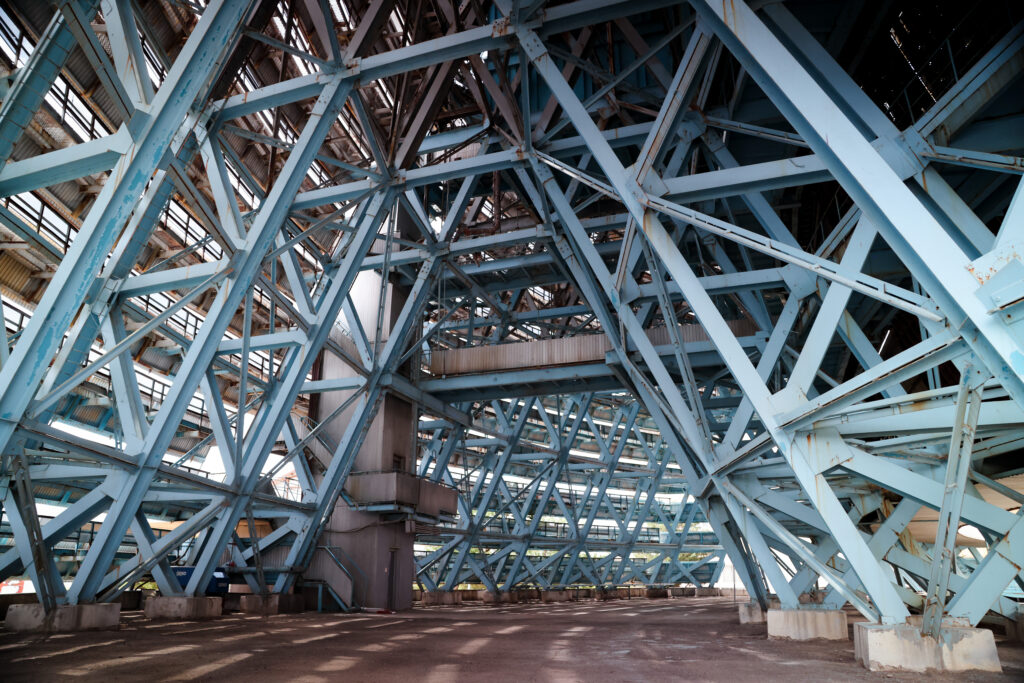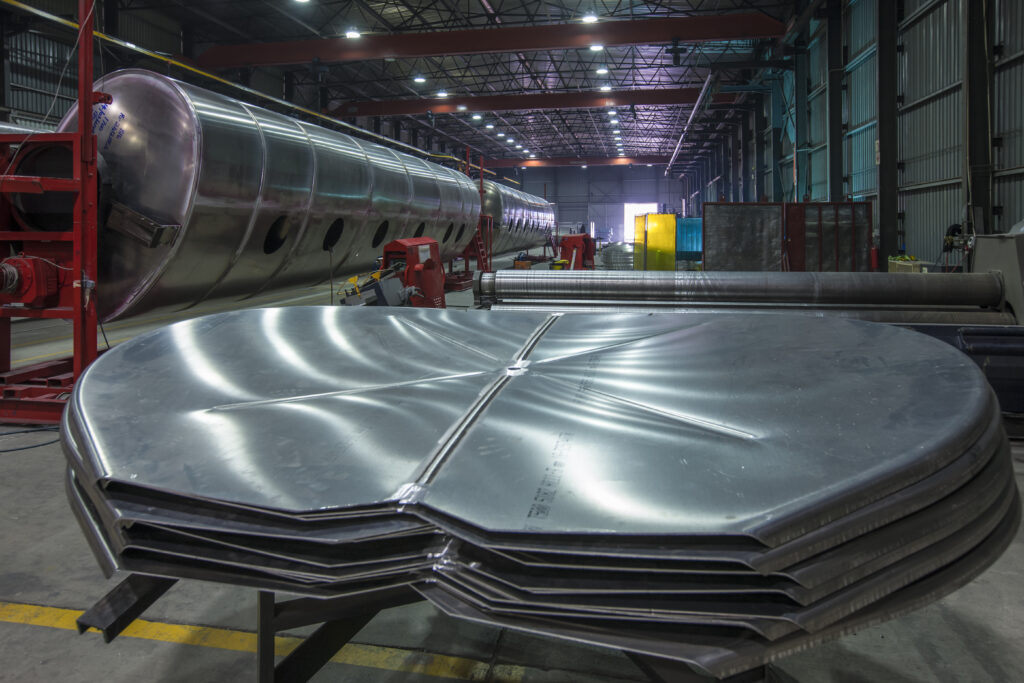When it comes to industrial materials, two names dominate the conversation: steel vs aluminum. Both metals play critical roles in construction, manufacturing, transportation, and everyday applications, but each brings unique strengths and trade-offs. Whether you’re comparing aluminum vs stainless steel, weighing the steel price, or sourcing reliable aluminum supply in Canada, knowing the differences helps you make informed choices for your projects.
At Millennium Specialty Alloys, we’ve built our reputation as a trusted steel company and non-ferrous metals distributor in Western Canada. From sheet metal and steel plate to high-performance plastics, our goal is to connect fabricators, builders, and manufacturers with the right materials, fast, reliable, and tailored to their needs. Discover our wide selection of aluminum and steel products designed to meet the demands of projects across construction, manufacturing, and fabrication.
Steel vs Aluminum: Strength, Weight, and Cost Compared
The debate around steel vs aluminum usually begins with three key factors: strength, weight, and cost.
- Strength
- Steel is renowned for its durability and high tensile strength, making it the backbone of heavy construction, structural frameworks, and machinery.
- Aluminum, while not as strong in its pure form, gains impressive resilience when alloyed. Aluminum alloy is widely used in aerospace, automotive, and architectural applications where strength-to-weight ratio is critical.
- Weight
- Aluminum is about one-third the weight of steel. This makes it ideal where reducing load is essential aircraft fuselages, car panels, and even lightweight bridges.
- Steel, however, maintains superior rigidity under pressure, which is why it dominates in skyscrapers, shipbuilding, and rail infrastructure.
- Cost
- Steel price tends to be lower per pound compared to aluminum, which often makes it more budget-friendly for bulk projects.
- Aluminum can be more cost-effective in the long term due to its corrosion resistance and lower maintenance requirements.
Ultimately, the steel vs aluminum choice depends on whether your project values strength above all, or whether weight savings and corrosion resistance matter more.
Aluminum vs Stainless Steel: Corrosion Resistance and Applications
When narrowing the field to aluminum vs stainless steel, corrosion resistance takes the spotlight. Both metals are prized for their ability to stand up against the elements, but they do so in very different ways.
Stainless Steel
Stainless steel is a type of alloyed steel containing chromium (and sometimes nickel, molybdenum, and other elements). This unique composition gives it a self-healing surface that resists rust and staining, even in harsh or high-moisture environments. Because of this, stainless steel is a staple in industries where hygiene, strength, and aesthetics must work hand in hand. From food processing equipment and medical tools to marine fittings and architectural details, stainless steel is built for environments where ordinary steel would quickly deteriorate.
Aluminum
Aluminum, on the other hand, achieves its protection through a natural oxide layer. The moment aluminum is exposed to air, it forms a thin, invisible shield that protects against further corrosion. This makes it a go-to for outdoor applications like roofing, siding, and transportation equipment where exposure to rain, snow, and fluctuating weather conditions is unavoidable. Aluminum also has the advantage of being much lighter than stainless steel, which makes it easier to transport, fabricate, and install.
So, when should you pick stainless steel and aluminum? Stainless steel shines when durability, hygiene, and appearance are non-negotiable—think commercial kitchens, breweries, railings, or medical-grade equipment. Aluminum is the better choice when lightweight performance, weather resistance, and ease of fabrication are at the top of the list—ideal for construction cladding, vehicle manufacturing, or lightweight structural projects. Neither material is universally better. Instead, each excels in its own domain, and that’s why so many industries rely on both to complement one another.
What is Steel? Types of Steel and Their Uses in Canada
Let’s take a step back: what is steel exactly? Simply put, it’s an alloy of iron and carbon, strengthened further with elements like manganese, nickel, or chromium. The result is a versatile material with countless variations.
Here are some kinds of steel widely used in the steel industry in Canada:
Carbon Steel: Affordable, strong, and widely used in construction beams, pipelines, and automotive parts.
Alloy Steel: Enhanced with elements like molybdenum and vanadium for added hardness, often used in tools and machinery.
Stainless Steel: Resistant to corrosion, ideal for hygienic and decorative applications.
Tool Steel: Extremely tough and wear-resistant, perfect for drills, dies, and cutting tools.
The steel industry in Canada is robust, with steel manufacturing supporting construction, energy, automotive, and industrial sectors. As a leading steel company, Millennium Specialty Alloys connects Canadian fabricators with reliable supply chains, ensuring projects stay on track with quality materials.
How is Aluminum Made? From Bauxite to Aluminum Supply
If you’ve ever wondered, how is aluminum made, the journey begins in the ground.
- Mining: Aluminum starts as bauxite, a reddish ore rich in alumina.
- Refining: Through the Bayer process, alumina (aluminum oxide) is extracted.
- Smelting: Using the Hall-Héroult process, alumina is reduced to pure molten aluminum via electrolysis.
- Fabrication: That aluminum is then cast into sheet metal, aluminum plate, tubing, or extrusions for countless applications.
For fabricators, the key benefit is accessibility. Millennium Specialty Alloys ensures customers get the aluminum supply fabricators need, whether that’s lightweight tubing or or durable aluminum alloy sheets for structural work.
Does Aluminum Rust? Durability of Steel and Aluminum in Sheet Metal & Plate
One of the most common questions customers ask is: does aluminum rust? The short answer: no.
- Aluminum doesn’t rust because rust is a specific form of iron oxide, and aluminum contains no iron. Instead, aluminum forms a protective oxide layer that prevents deep corrosion.
- Steel, unless treated or alloyed (like stainless steel), will rust when exposed to moisture and oxygen. This makes surface coatings, galvanization, or alloying essential in certain applications.
When comparing steel and aluminum in sheet metal or steel plate, the choice comes down to exposure and durability:
- Steel plate is unmatched for heavy-duty applications like bridges, ships, and industrial equipment.
- Aluminum sheet metal shines in roofing, siding, and lightweight enclosures where corrosion resistance is critical.
In short, steel vs aluminum in terms of durability isn’t about better or worse, it’s about suitability for the environment and application.
Final Thoughts: Choosing the Right Metal for Your Project
The types of metal available today, from stainless and carbon steel to lightweight aluminum alloys, mean there’s no one-size-fits-all solution. The steel industry and the aluminum industry in Canada both continue to innovate, offering high-quality materials for every sector.
At Millennium Specialty Alloys, we help customers navigate the steel vs aluminum decision by supplying a wide range of products: steel plate, sheet metal, stainless steel, aluminum alloy, and more. Our expertise ensures you get the right material, at the right time, for the right application.
Whether you’re sourcing for construction, fabrication, or specialized industrial needs, think of us as your go-to steel company in Canada, backed by industry knowledge, a robust supply chain, and a customer-first approach.



